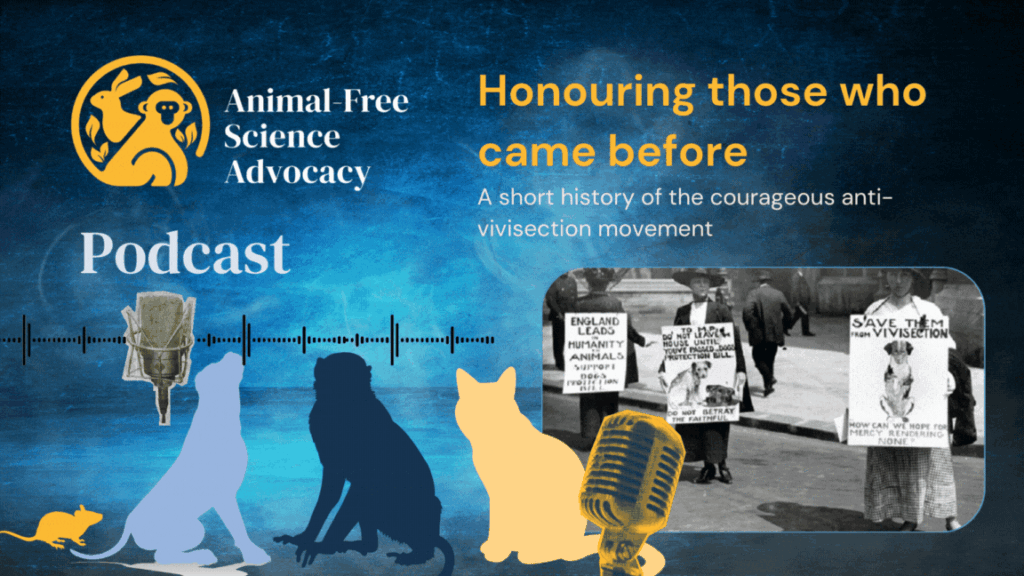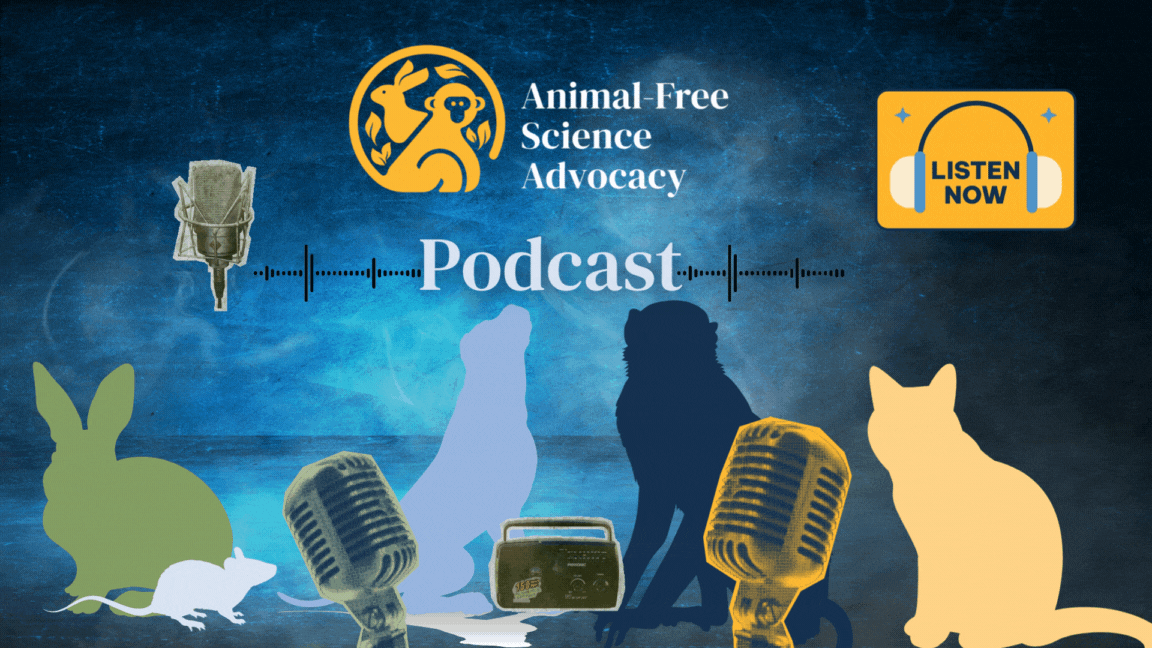
The Animal-Free Science Advocacy podcast interviews leading experts, animal advocates, healthcare consumers and leaders in the areas of scientific research, animal sentience, animal law, animal ethics, animal law and conservation to gain a diverse range of perspectives on the critical issue of using animals in research in Australia.
The podcast discusses the urgent necessity to phase out animal use in research and teaching and highlights alternative methods to using animals which deliver more accurate research results, without the unnecessary suffering of animals.
You can find the Animal-Free Science Advocacy podcast on a number of different podcast players
Maddie Krasno: Justify
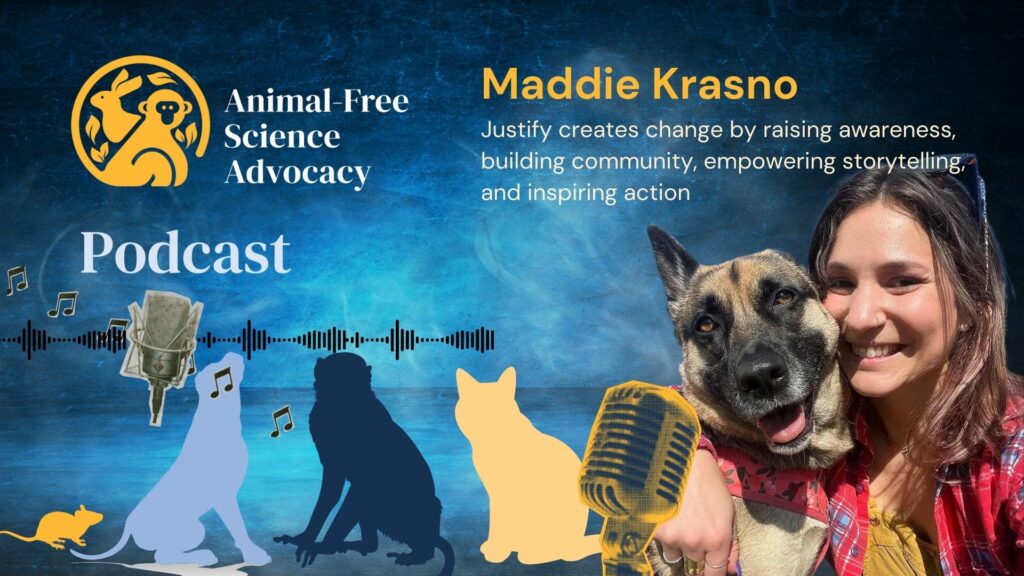
Dr Pandora Pound: Research Director Safer Medicines Trust
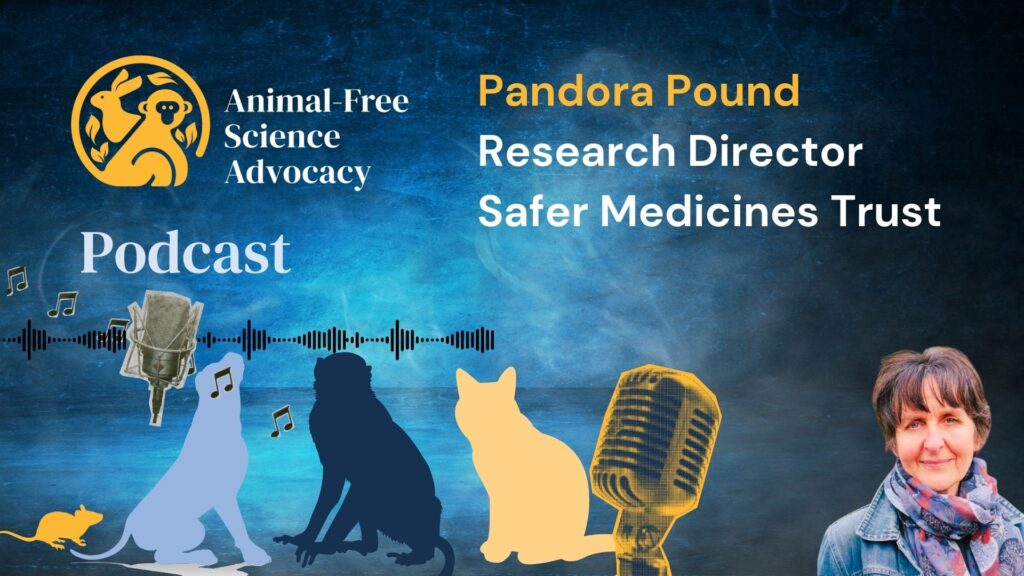
Savita Nutan: Former Researcher, Educator and Founder of Medicine Without Cruelty
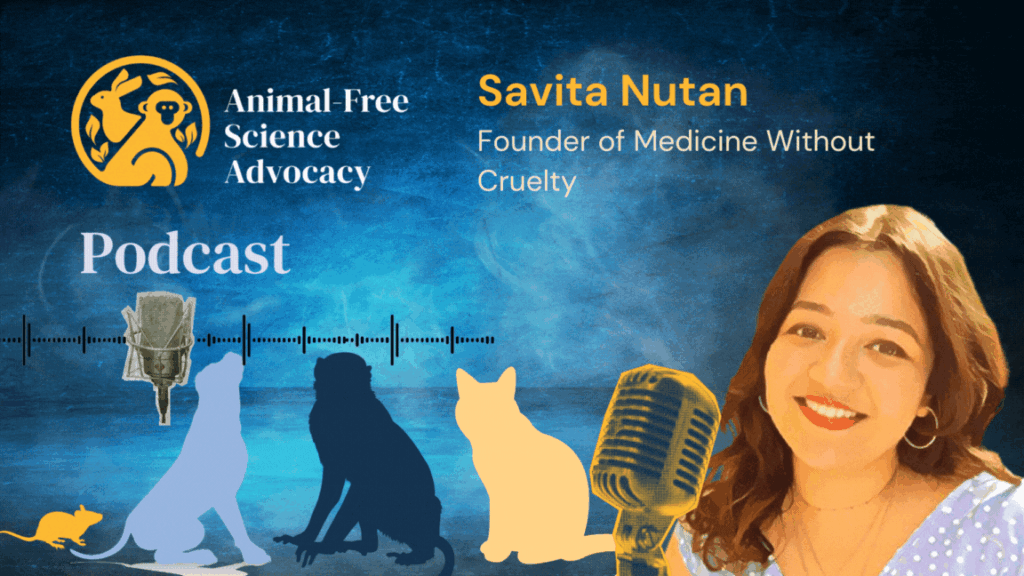
Sarah Margo interview: "This space feels hopeful"
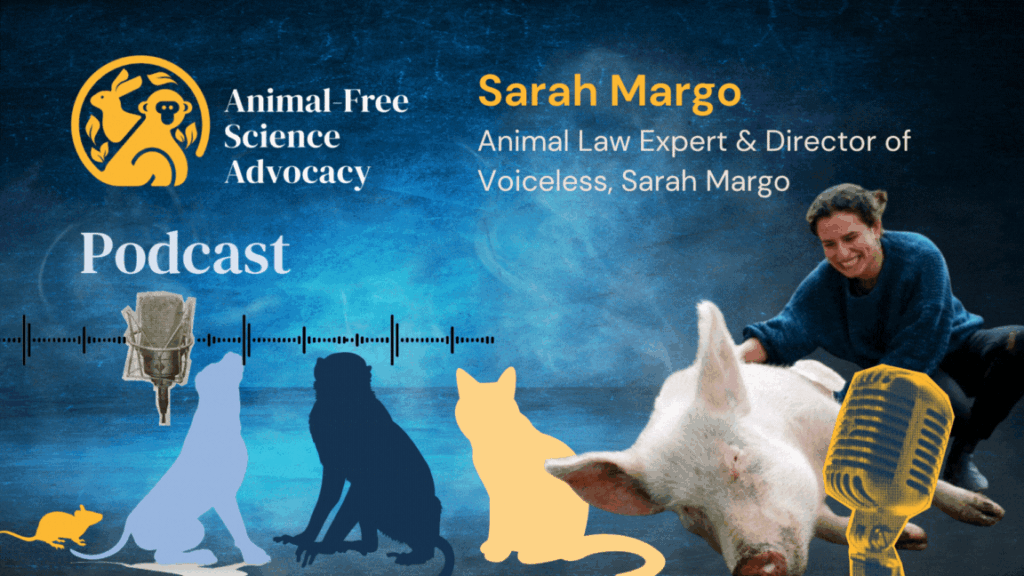
Animal-Free Science Advocacy CEO Rachel Smith interviews Sarah Margo, an expert in animal law on her perspective of the failings of the Australian regulatory system surrounding animals in science.
Sarah is Policy Advisor to the Hon. Emma Hurst MLC of the Animal Justice Party, Animal Law Teaching Fellow at UNSW and Director of Voiceless, the Animal Protection Institute and an Animal Law and Policy Consultant.
Watch the episode on YouTube.Clinical Researcher Nisha Narang: On ending animal-derived medical products
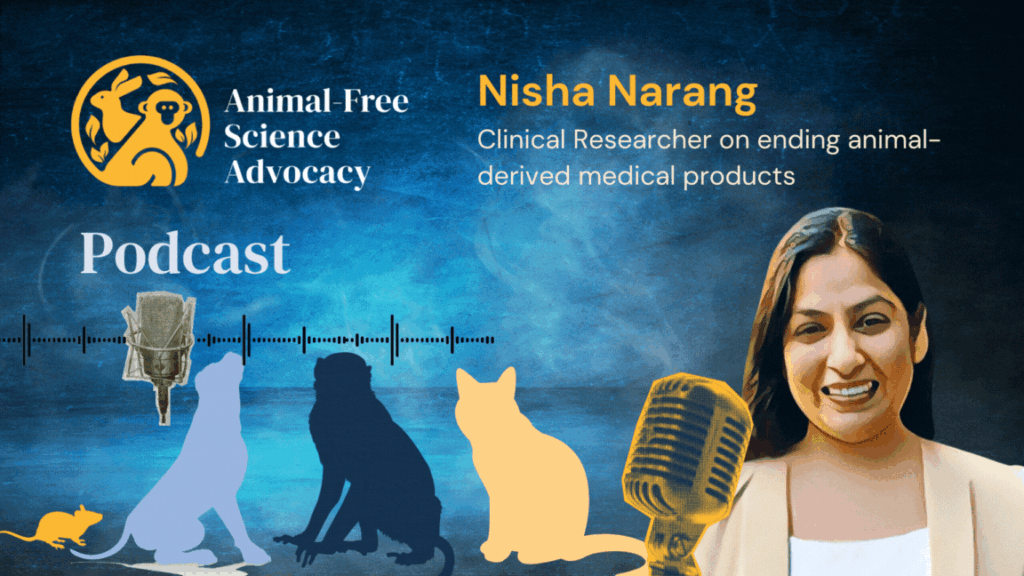
Dr Hugo Morandini: A vision for clinical neuroscience without animals
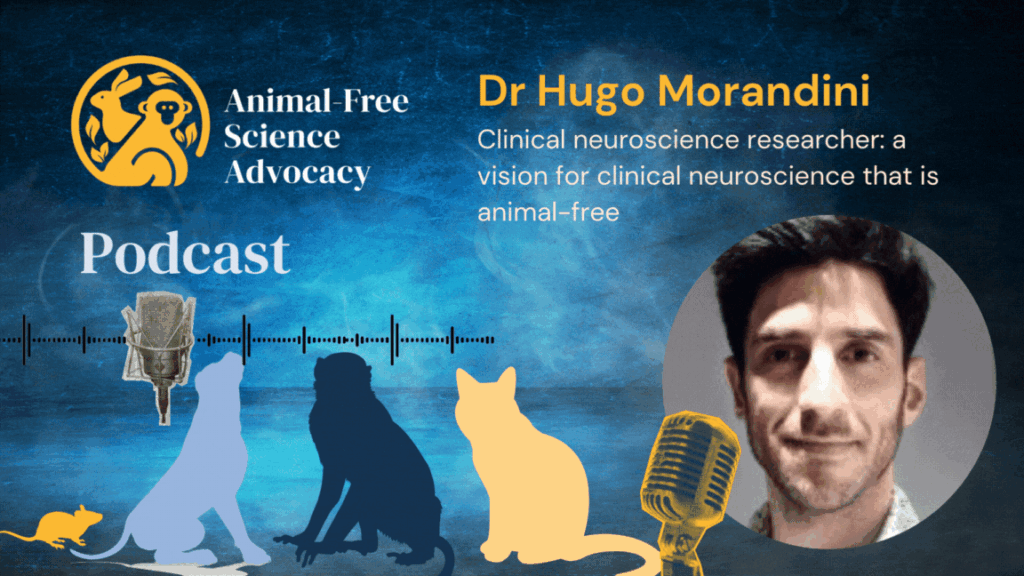
Dr Denise Russell: Are Animal Ethics Committees effective?
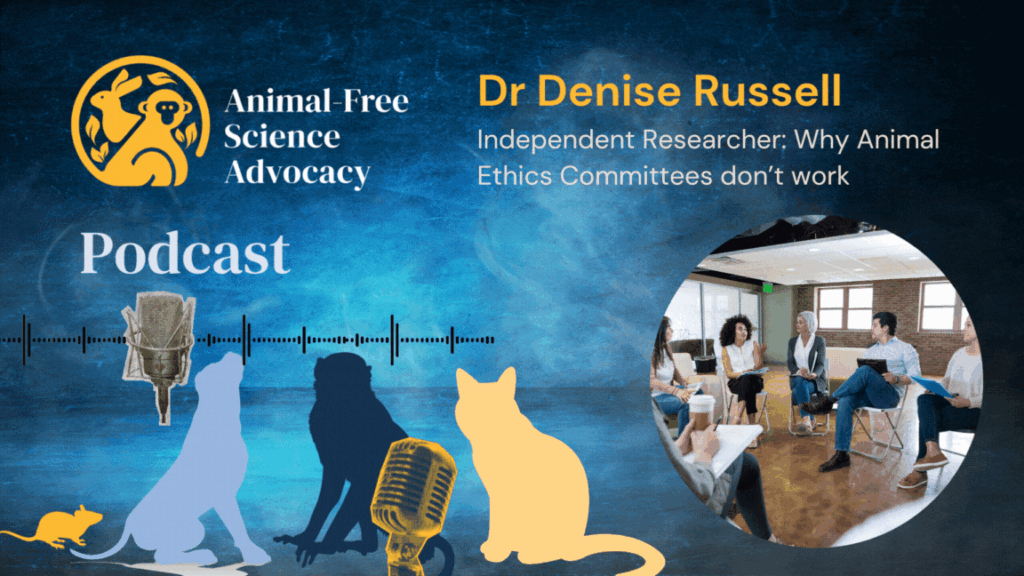
Rosemary Lavin: "What I've learned over 50 years as an animal advocate"
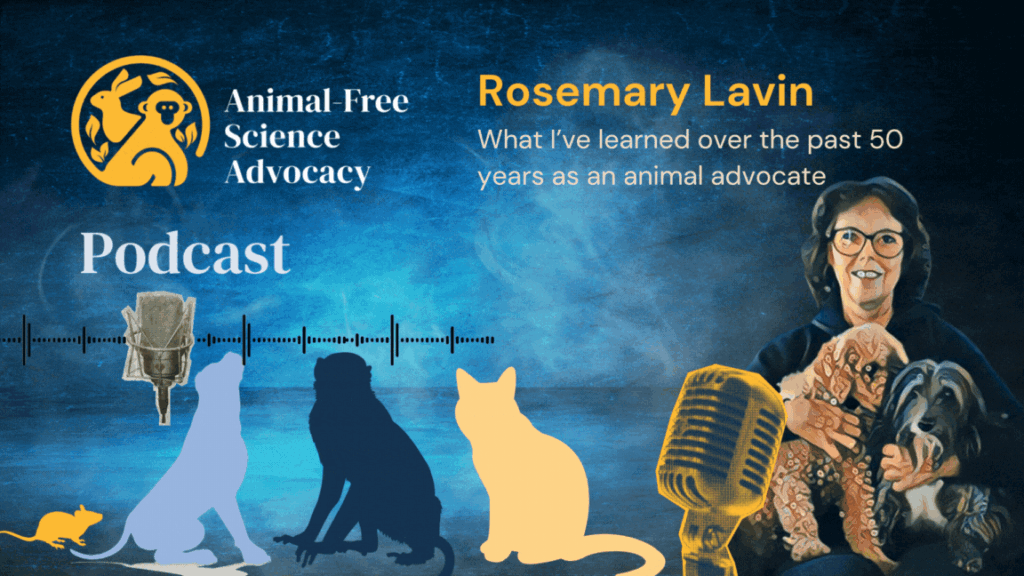
Animal-free alternatives to cruel animal dissection in Australian schools
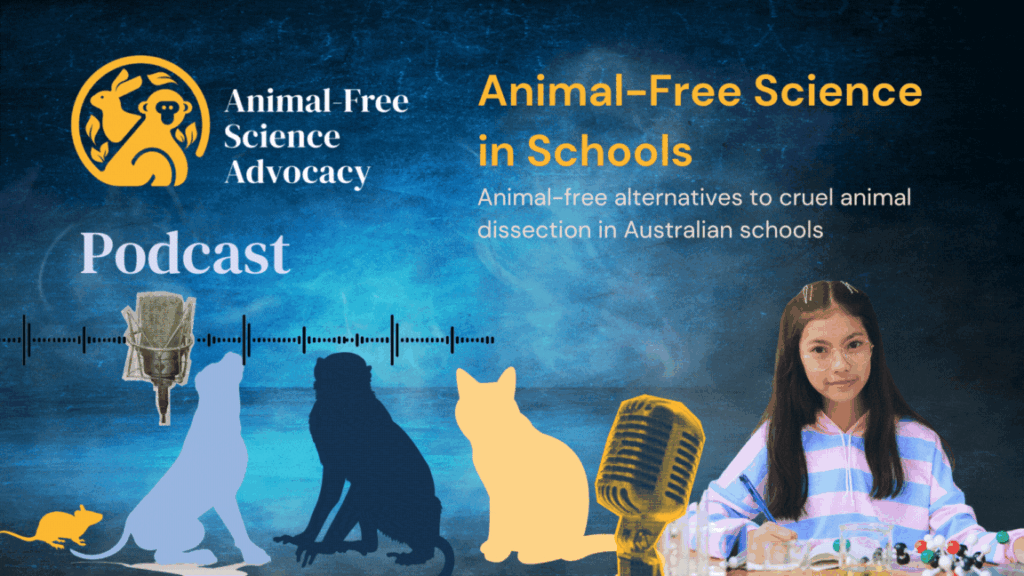
Belinda: Living with a life-threatening illness and remaining against animal experimentation
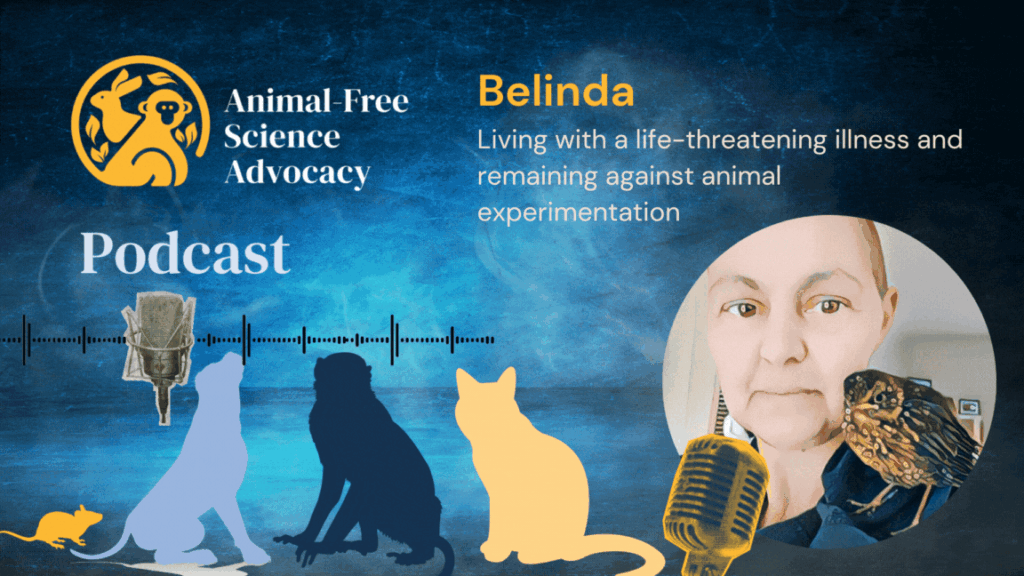
Animal-Free Science Advocacy's CEO Rachel: The questionable ethics behind the forced smoke inhalation tests

Animal-Free Science Advocacy's Science Consultant Natalie: Why we need to transition away from forced inhalation tests
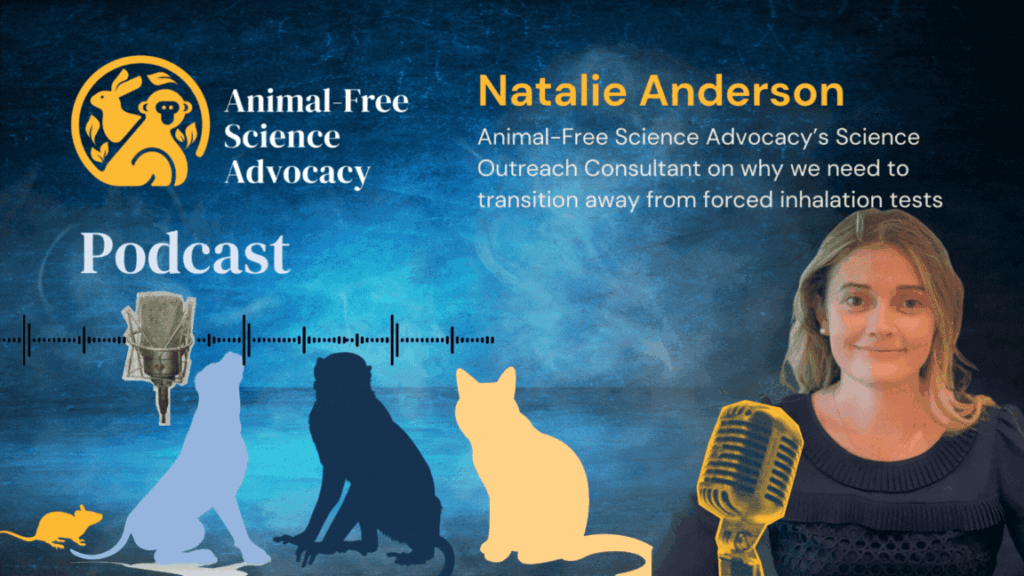
A short history of the courageous Anti-Vivisection Movement
